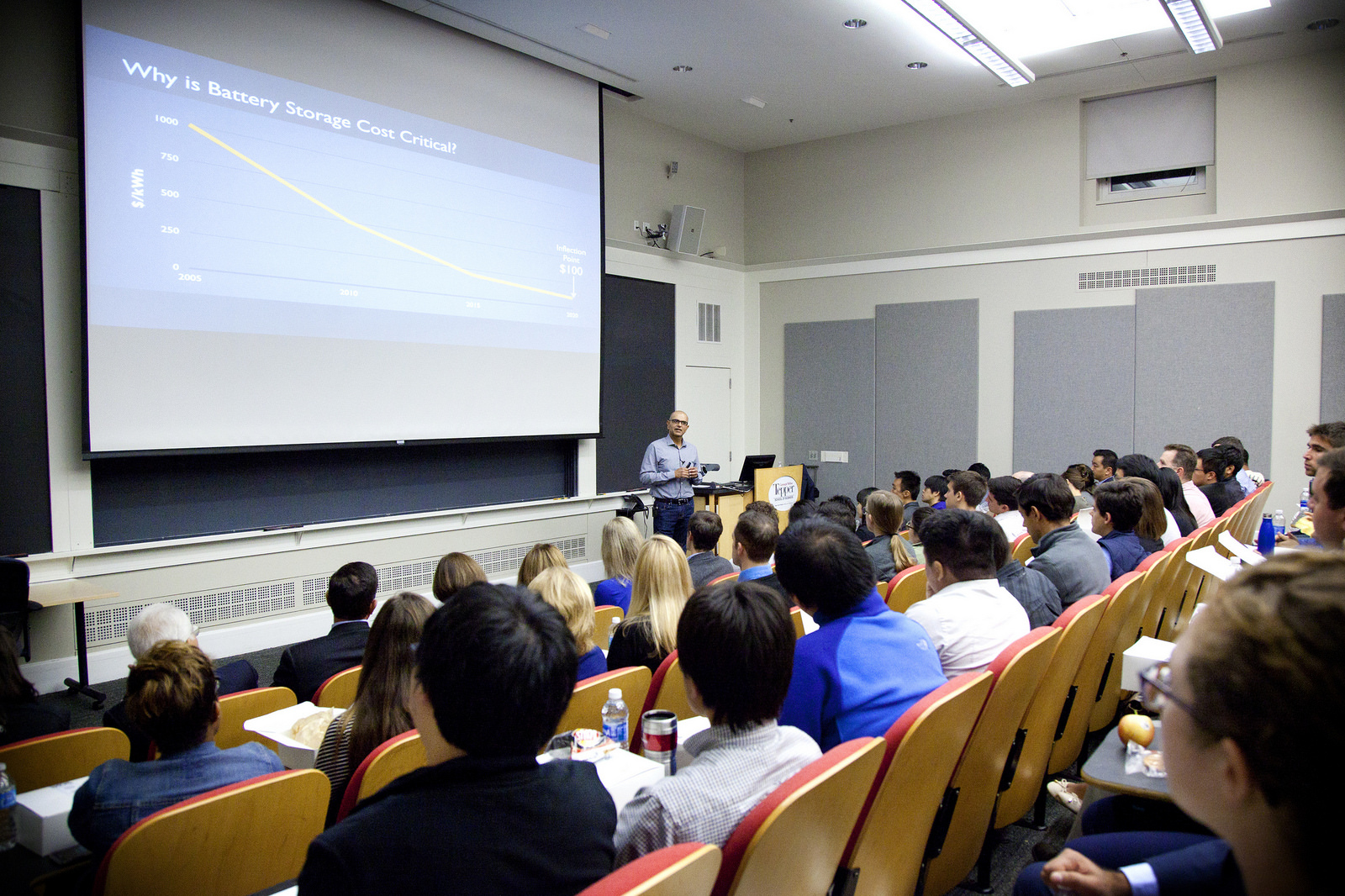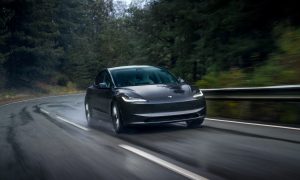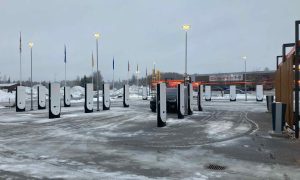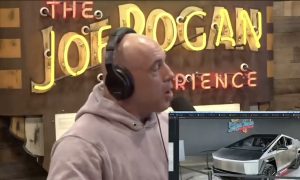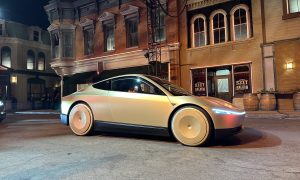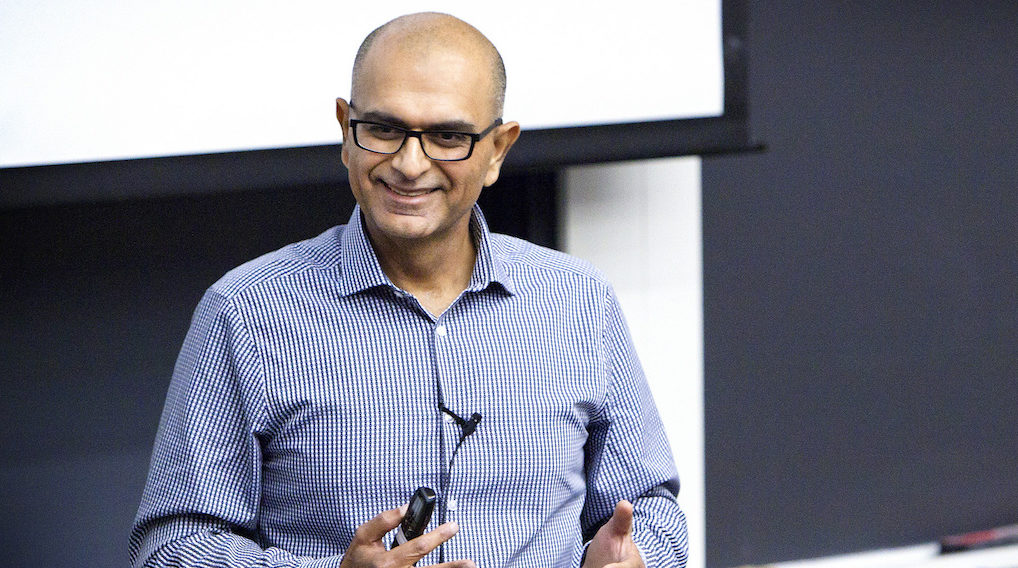

Investor's Corner
Tesla Q1 Earnings Call: The return of superstar CFO Deepak Ahuja
Deepak Ahuja may not be a household name, but he’s a key player in the storied history of Tesla [NASDAQ: TSLA]. He was the company’s first CFO, and was at the financial helm through the near-death experience of 2008 and the triumphant IPO in 2010. Ahuja retired in 2015. Jason Wheeler, Google’s former VP of Finance, took over for Ahuja but recently announced his departure in order to pursue interests in the public sector. In turn, Ahuja came out of retirement to become Tesla’s CFO once again. Today, you’ll hear Ahuja’s voice on Tesla’s much-anticipated earnings call.
Ahuja had originally left a comfortable position at Ford, and moved his family from Michigan to Silicon Valley, to join a company that at the time could only have been described as a quixotic startup. As was the case with other key execs, it was Elon Musk’s sincere commitment that convinced Ahuja to jump into the ocean. “Meeting Elon Musk, and understanding his vision of Tesla, was a game-changing moment in my life,” Ahuja recently told graduates at his alma mater, Northwestern University. “I felt passion about this opportunity in a way that I hadn’t felt before.”
Photo credit: TepperCMU
Tesla’s feats of acceleration tend to get most of the press, but expert financial guidance has been one of the keys to the company’s success from the beginning, so Mr. Ahuja’s contribution may have been (and be) greater than anyone outside the Tesla boardroom will ever know. Ahuja discussed some of his unique personal history and challenges working at Tesla as part of a panel discussion about ‘How to build unicorn companies’ in Silicon Valley.
In a recent presentation at Carnegie Mellon’s Tepper School of Business, Ahuja spoke about the gathering wave of disruption in the traditionally slow-moving auto industry. He discussed three major trends driving the transformation: electric vehicles, battery storage and autonomous driving. “We are at the early part of the steep S curve of innovation in each of these changes, which is what makes it really exciting.”
Above: Clips from Ahuja’s panel discussion (Source footage: diyatvusa / Vimeo)
From the beginning, Tesla has worked not only to make superlative cars, but also to transform the process by which those cars are produced. The company hired the best process and manufacturing engineers it could find. “What that enabled Tesla to do was to build completely new manufacturing processes in a cost-efficient manner, to get a better ROI than the other car companies,” Ahuja said.
For electric vehicles (EVs) to truly compete with legacy vehicles, everyone agrees they need to get cheaper. The key to that, says Ahuja, is reducing the cost of energy storage. He estimates that a cost of $100 per kilowatt hour could be achieved within five years, and predicts that this will be “the natural inflection point at which EVs become an economic no-brainer.” This milestone will be “really transformational” for the industry.
Autonomous driving will also disrupt the motor trade in many ways. Ahuja points out that 95 percent of auto accidents are caused by human error, so autonomous cars will help reduce medical and insurance costs. They will also use transportation infrastructure more efficiently, because cars will be able to travel faster and closer together. “The thing to keep in mind is that self-driving cars don’t have to be perfect to change the world,” says Ahuja. “They just have to be better than human beings.”
A big thanks to EVANNEX for providing us with this story. This story was originally published on their site at EVANNEX.com
Investor's Corner
Tesla “best positioned” for Trump tariffs among automakers: analyst
Ives has a price target of $315 per share for the electric vehicle maker.
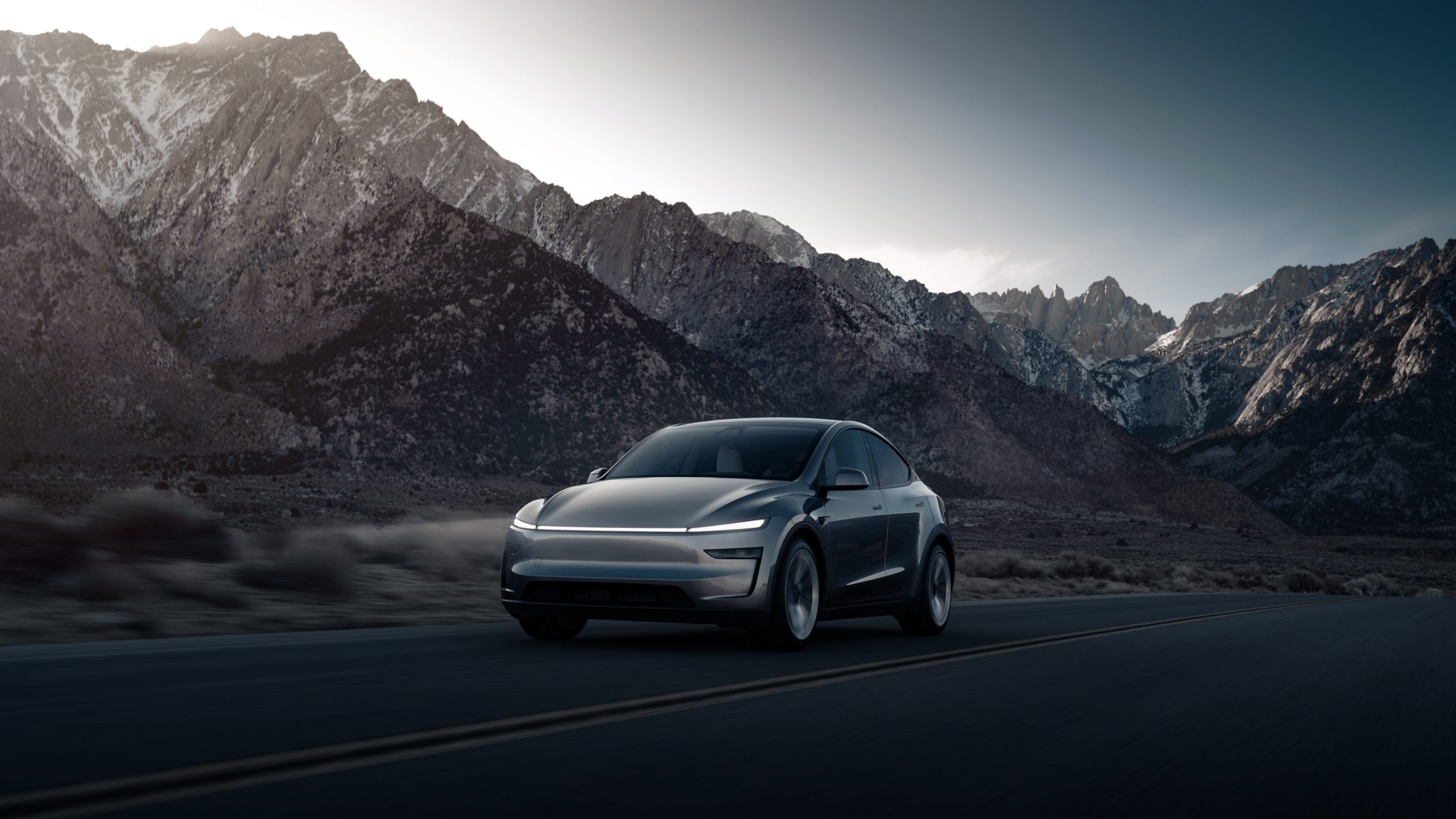
Wedbush analyst Dan Ives recently shared his thoughts about Tesla (NASDAQ:TSLA) amidst the Trump administration’s tariffs. As per Ives, Tesla is best-positioned relative to its rivals when it comes to the ongoing tariff issue.
Ives has a price target of $315 per share for the electric vehicle maker.
Best Positioned
During an interview with Yahoo Finance, the segment’s hosts asked about his thoughts on Tesla, especially considering Musk’s work with the Trump administration. Musk has previously stated that the effects of tariffs on Tesla are significant due to parts that are imported from abroad.
“When it comes to the tariff issue, they are actually best positioned relative to the Detroit Big Three and others and obviously foreign automakers. Still impacted, Musk has talked about that, in terms of just auto parts,” Ives stated.
China and Musk
Ives also stated that ultimately, a big factor for Tesla in the coming months may be the Chinese market’s reactions to its tariff war. He also noted that the next few quarters will be pivotal for Tesla considering the brand damage that Elon Musk has incited due to his politics and work with the Trump administration.
“When it comes to Tesla, I think the worry is where does retaliatory look like in China, in terms of buying domestic. I think that’s something that’s a play. And they have a pivotal six months head, in terms of what everything we see in Austin, autonomous, and the buildout.
“But the brand issues that Musk self-inflicted is dealing with in terms of demand destruction in Europe and the US. And that’s why this is a key few quarters ahead for Tesla and also for Musk to make, in my opinion, the right decision to take a step back from the administration,” Ives noted.
Investor's Corner
Tesla negativity “priced into the stock at its current levels:” CFRA analyst
The CFRA analyst has given Tesla a price target of $360 per share.
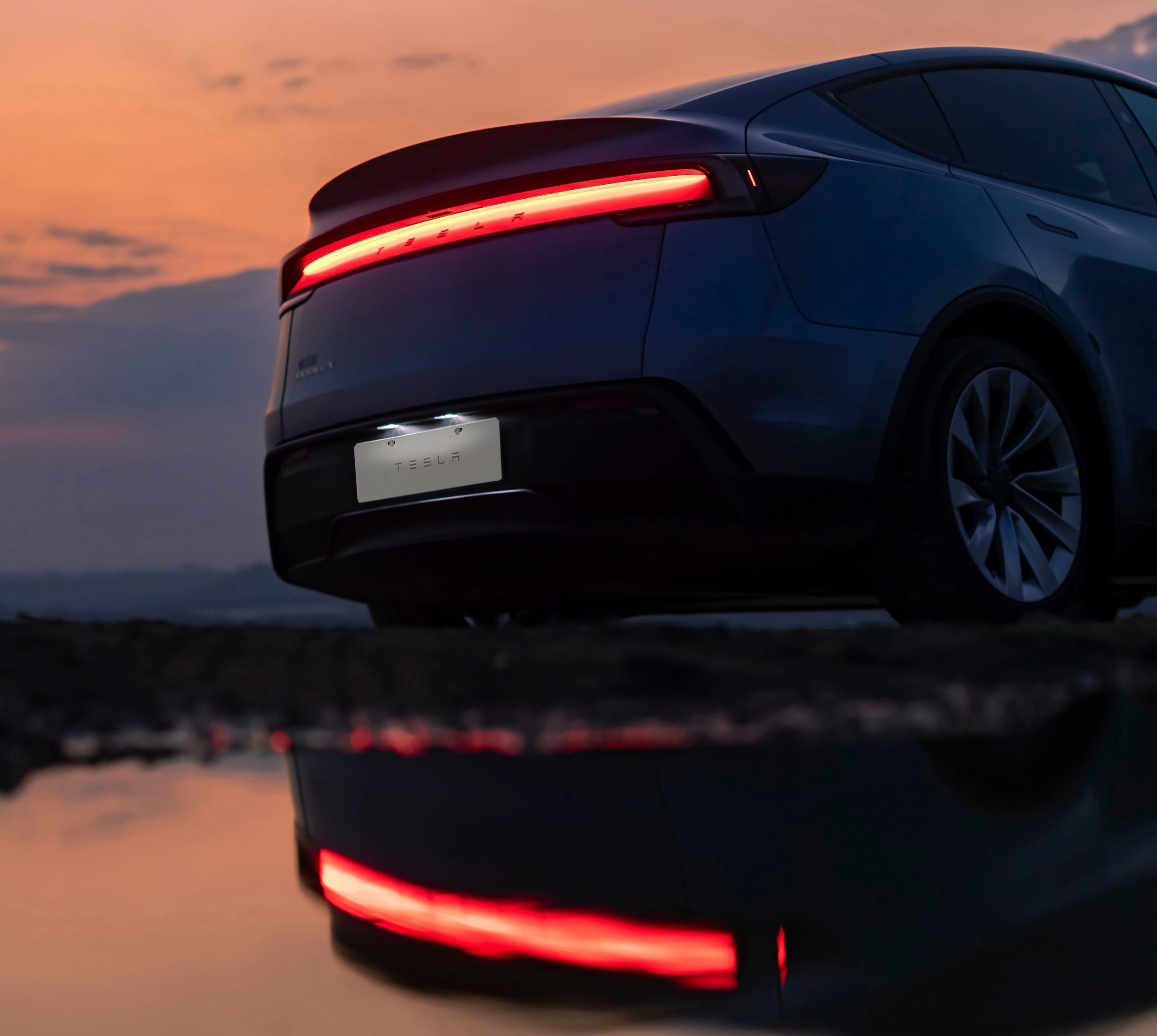
In recent comments to the Schwab Network, CFRA analyst Garrett Nelson stated that a lot of the “negative sentiment towards Tesla (NASDAQ:TSLA) is priced into the stock at its current levels.”
The CFRA analyst has given Tesla a price target of $360 per share.
Q1 A Low Point in Sales
The CFRA analyst stated that Tesla’s auto sales likely bottomed last quarter, as noted in an Insider Monkey report. This was, Nelson noted, due to Q1 typically being the “weakest quarter for automakers.” He also highlighted that all four of Tesla’s vehicle factories across the globe were idled in the first quarter.
While Nelson highlighted the company’s changeover to the new Model Y as a factor in Q1, he also acknowledged the effects of CEO Elon Musk’s politics. The analyst noted that while Tesla lost customers due to Musk’s political opinions, the electric vehicle maker has also gained some new customers in the process.
CFRA’s Optimistic Stance
Nelson also highlighted that Tesla’s battery storage business has been growing steadily over the years, ending its second-best quarter in Q1 2025. The analyst noted that Tesla Energy has higher margins than the company’s electric vehicle business, and Tesla itself has a very strong balance sheet.
The CFRA analyst also predicted that Tesla could gain market share in the United States because it has less exposure to the Trump administration’s tariffs. Teslas are the most American-made vehicles in the country, so the Trump tariffs’ effects on the company will likely be less notable compared to other automakers that produce their cars abroad.
Investor's Corner
Tesla average transaction prices (ATP) rise in March 2025: Cox Automotive
Tesla Model Y and Model 3 saw an increase in their average transaction price (ATP) in March 2025.
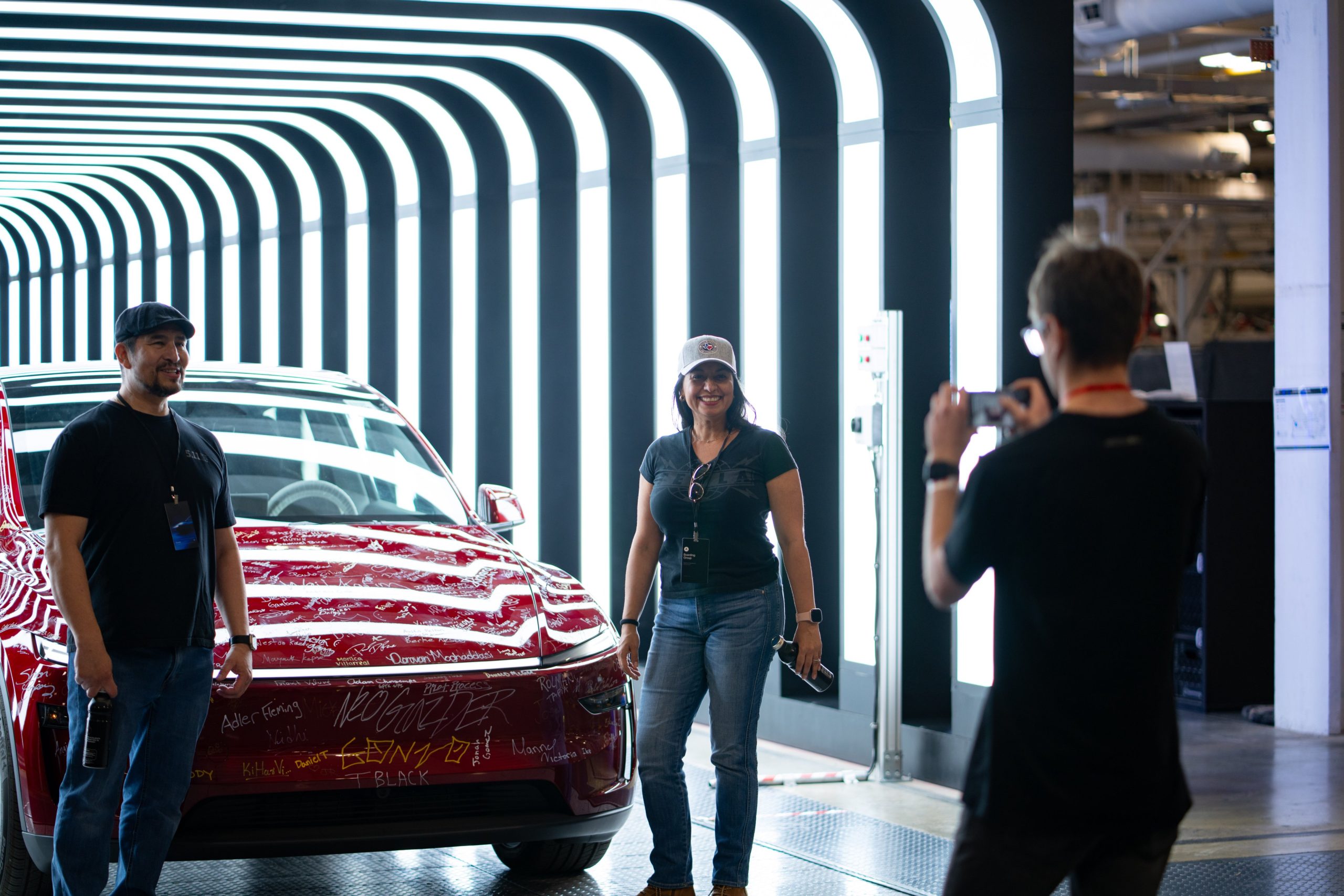
Data recently released from Cox Automotive’s Kelley Blue Book has revealed that electric vehicles such as the Tesla Model Y and Model 3 saw an increase in their average transaction price (ATP) in March 2025.
Cox Automotive’s findings were shared in a press release.
March 2025 EV ATPs
As noted by Cox, new electric vehicle prices in March were estimated to be $59,205, a 7% increase year-over-year. In February, new EV prices had an ATP of $57,015. The average transaction price for electric vehicles was 24.7% higher than the overall auto industry ATP of $47,462.
As per Cox, “Compared to the overall industry ATP ($47,462), EV ATPs in March were higher by nearly 25% as the gap between new ICE and new EV grows wider. EV incentives continued to range far above the industry average. In March, the average incentive package for an EV was 13.3% of ATP, down from the revised 14.3% in February.”
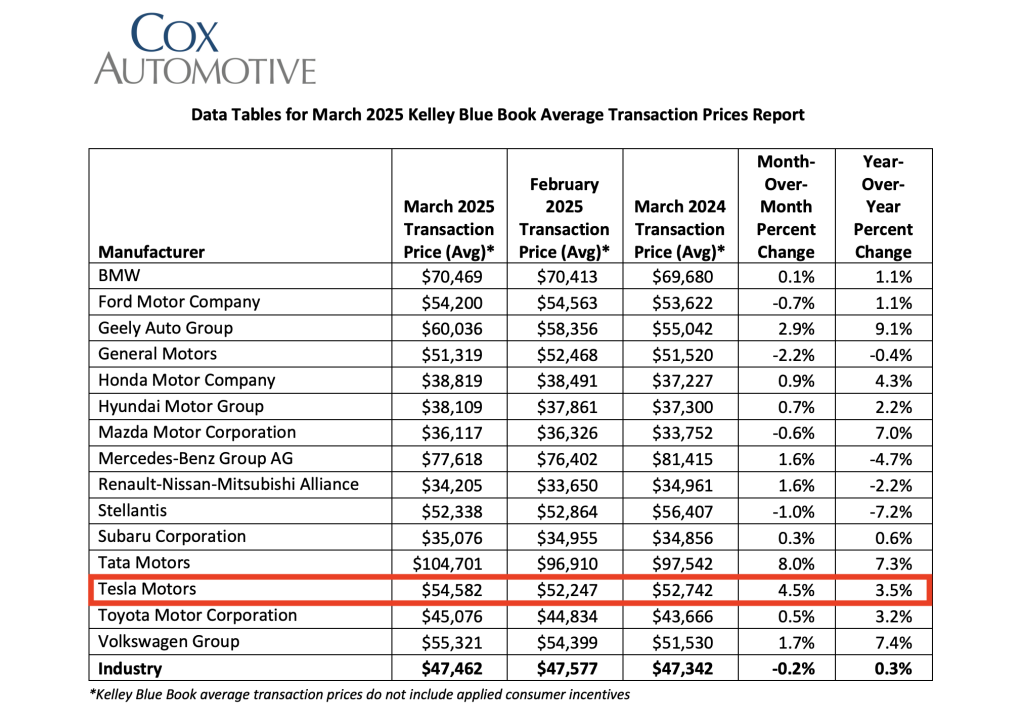
Tesla ATPs in Focus
While Tesla saw challenges in the first quarter due to its factories’ changeover to the new Model Y, the company’s ATPs last month were estimated at $54,582, a year-over-year increase of 3.5% and a month-over-month increase of 4.5%. A potential factor in this could be the rollout of the Tesla Model Y Launch Series, a fully loaded, limited-edition variant of the revamped all-electric crossover that costs just under $60,000.
This increase, Cox noted, was evident in Tesla’s two best-selling vehicles, the Model 3 sedan and the Model Y crossover, the best-selling car globally in 2023 and 2024. “ATPs for Tesla’s two core models – Model 3 and Model Y – were higher month over month and year over year in March,” Cox wrote.
Cox’s Other Findings
Beyond electric vehicles, Cox also estimated that new vehicle ATPs held steady month-over-month and year-over-year in March at $47,462, down slightly from the revised-lower ATP of $47,577 in February. Sales incentives in March were flat compared to February at 7% of ATP, though they are 5% higher than 2024, when incentives were equal to 6.7% of ATP.
Estimates also suggest that new vehicle sales in March topped 1.59 million units, the best volume month in almost four years. This was likely due to consumers purchasing cars before the Trump administration’s tariffs took effect. As per Erin Keating, an executive analyst at Cox, all things are pointing to higher vehicle prices this summer.
“All signs point to higher prices this summer, as existing ‘pre-tariff’ inventory is sold down to be eventually replaced with ‘tariffed’ inventory. How high prices rise for consumers is still very much to be determined, as each automaker will handle the price puzzle differently. Should the White House posture hold, our team is expecting new vehicles directly impacted by the 25% tariff to see price increases in the range of 10-15%,” Keating stated.
-
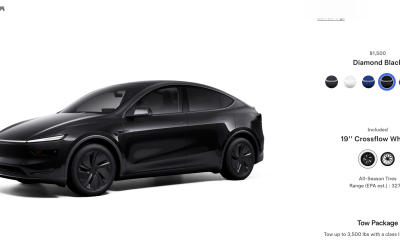
 News2 weeks ago
News2 weeks agoTesla rolls out new, more affordable trim of the Model Y Juniper in U.S.
-

 Elon Musk2 weeks ago
Elon Musk2 weeks agoTesla Germany reports 4,935 units sold in Q1 2025
-
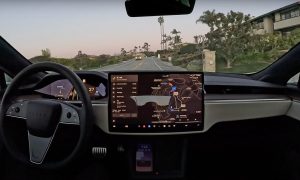
 News2 weeks ago
News2 weeks agoTesla expands Early Access Program (EAP) for early Full Self-Driving testing
-
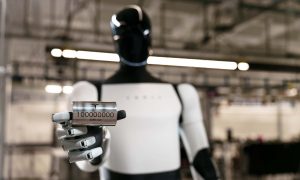
 News2 weeks ago
News2 weeks agoTesla celebrates key milestone for 4680 battery cell production cost
-
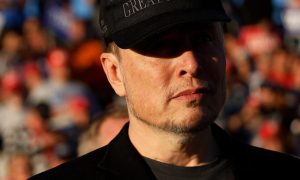
 News2 weeks ago
News2 weeks agoElon Musk will continue as DOGE adviser: VP Vance
-

 Elon Musk2 weeks ago
Elon Musk2 weeks agoNeuralink’s Patient Registry is now open globally
-
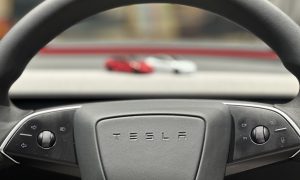
 Investor's Corner2 weeks ago
Investor's Corner2 weeks ago“Nothing Magnificent about Tesla (TSLA),” claims Jim Cramer
-
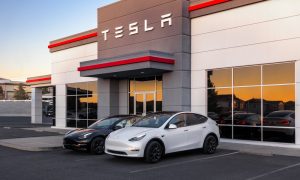
 Elon Musk2 weeks ago
Elon Musk2 weeks agoThis Tesla vandal caused thousands in damage, but she was let off the hook: Here’s why

